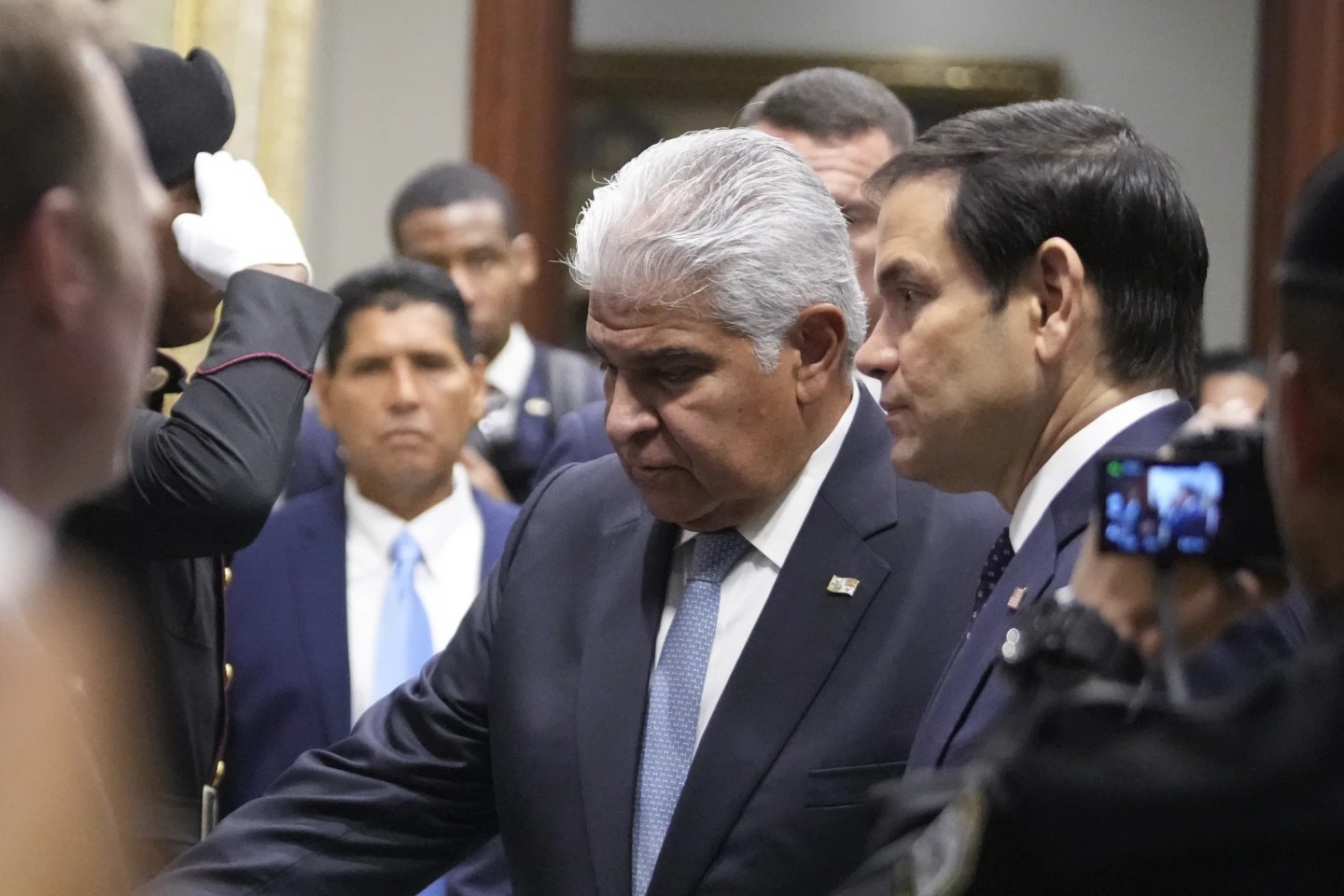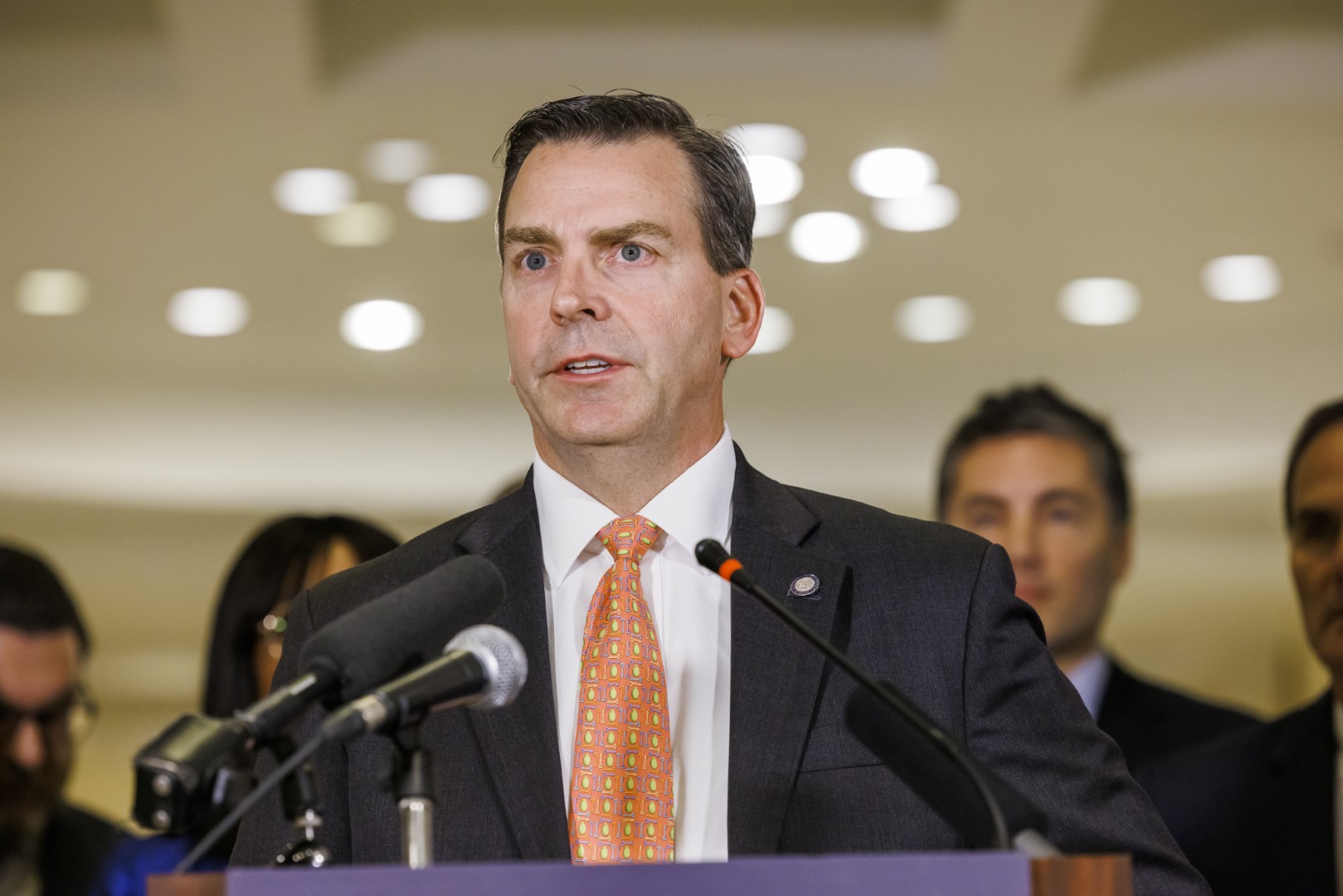Last Call – A prime-time read of what’s going down in Florida politics.
First Shot
The Governor’s budget recommendation has landed.
The plan, released just before the deadline late Sunday, calls for $115.6 billion in overall spending. That’s a slight decrease from the current-year budget, which weighed in at $116.5 billion post-vetoes.
The Republican seems to have his eye on austerity, naming his proposal “Focus on Fiscal Responsibility. A chunk of the year-over-year decrease comes from slashing positions at a handful of state agencies.
The Department of Health would see the largest reduction, with DeSantis’ proposal nixing a net 484 positions as he slashes the total budget by more than 10.7%. He also wants 325 fewer positions in the Department of Children and Families, though he wants to increase its budget in dollars by almost 1.5%. But he wants to increase the budget for the State Court System by about 4.6%, while increasing staffing by a net 112 positions.
The Department of Agriculture and Consumer Services is also in the crosshairs amid the Governor’s ongoing feud with Agriculture Commissioner Wilton Simpson.
The FDACS cuts equate to a 13% ($398 million) reduction from the current-year budget, recommending overall funding of $2.68 billion for the department. Much of the reduction is directed at the Agriculture Department’s executive direction and support services, which would be slashed by a staggering 73%, lowering it from the currently budgeted $126.3 million to just $33.6 million.
DeSantis’ recommendation also redirects some health care spending, providing more than $266.9 million for cancer research advancement. This includes $132.5 million for the Casey DeSantis Cancer Research Program, $60 million for the Florida Cancer Innovation Fund, and another $30 million for the launch of the Cancer Connect Collaborative Incubator, which focuses on pediatric cancer research.
Visit Florida Politics for further coverage of DeSantis’ budget recommendation.
Evening Reads
—”Donald Trump moves to wrest control of USAID as Elon Musk says, ‘We’re shutting it down’” via John Hudson, Ellen Nakashima, Missy Ryan, Mariana Alfaro and Faiz Siddiqui of The Washington Post
—”Purging the government could backfire spectacularly” via Rogé Karma of The Atlantic
—“The legal theory that would make Trump the most powerful president in U.S. history” via Ian Millhiser of Vox
—”Trump’s trade move could increase costs for many online goods” via Ana Swanson and Keith Bradsher of The New York Times
—”Trump followed through on tariffs. Is he ready for the fallout? Are Americans?” via Bill Barrow of The Associated Press
—”Gov. Ron DeSantis proposes $116B budget, wants focus on ‘fiscal responsibility’” via Jacob Ogles of Florida Politics
—”DeSantis wants cuts to Agriculture Department amid feud with Wilton Simpson” via Gabrielle Russon of Florida Politics
—”Live Local Act backlash growing in Fort Lauderdale. But some say give state’s affordable housing law a chance.” via Susannah Bryan of the South Florida Sun-Sentinel
—”Everyone’s rattled by the rise of DeepSeek — except NVIDIA, which enabled it” via Raffaele Huang, Stu Woo and Asa Fitch of The Wall Street Journal
—“Grammys finally delivers the Beyoncé victory we’ve been waiting for” via Rob Sheffield of Rolling Stone
Quote of the Day
“We know what works, and we need to continue to double down on those efforts. We’re showing that you could be fiscally responsible, respect taxpayers and yet still deliver on the main promises that you made and the main public needs of our people.”
— Gov. Ron DeSantis, on his 2025-26 budget recommendation.
Put it on the Tab
Look to your left, then look to your right. If you see one of these people at your happy hour haunt, flag down the bartender and put one of these on your tab. Recipes included, just in case the Cocktail Codex fell into the well.
Oysters have a rich tradition in both Florida and the art of mixology. By recommending $30 million to restore the Sunshine State’s oyster reefs, the Governor earned his pick of top Oyster-Based Cocktails.
Despite cuts in other areas, the “Focus on Fiscal Responsibility” budget pitches $3.2 billion for environmental proposals. That means an Everglades Special in order.
With the Governor recommending major cuts at FDACS, Agriculture Commissioner Wilton Simpson could use a Bull Shot.

Breakthrough Insights

Tune In
Bethune-Cookman looks to stay perfect at home
Bethune-Cookman tries to match the team’s longest winning streak of the season tonight as the Wildcats host Alabama A&M (7 p.m. ET, CatEye Network).
Bethune-Cookman (8-13, 5-3 SWAC) has not won more than two consecutive games all season but has been outstanding at home, winning all four games at Moore Gymnasium in Daytona Beach. The Wildcats enter the week tied with Florida A&M for fourth place in the SWAC standings. On Saturday, BCU defeated Alabama State 67-64. Trey Thomas led the Wildcats with 19 points and a season-high 10 rebounds, while Daniel Rouzan added 17 points in 23 minutes of play.
A challenging non-conference schedule helped to prepare Bethune-Cookman for the SWAC campaign. Road losses to Texas Tech, Nebraska, Minnesota, Virginia, West Virginia, and Mississippi State hurt the overall record, but the lessons learned have paid off against SWAC opponents.
Alabama A&M (4-18, 3-6) has lost five of their last six games, including a 95-79 loss at Florida A&M on Saturday. The Bulldogs have yet to win a road game this season. Only two players average double figures in scoring this season for Alabama A&M. AC Bryant (14.8 ppg), and Chad Moodie (11.0) lead a squad with nine players averaging more than five points per contest.
___
Last Call is published by Peter Schorsch, assembled and edited by Phil Ammann and Drew Wilson, with contributions from the staff of Florida Politics.
Post Views: 0

 Entertainment8 years ago
Entertainment8 years ago
 Entertainment8 years ago
Entertainment8 years ago
 Politics8 years ago
Politics8 years ago
 Tech8 years ago
Tech8 years ago
 Tech8 years ago
Tech8 years ago
 Tech8 years ago
Tech8 years ago
 Politics8 years ago
Politics8 years ago
 Tech8 years ago
Tech8 years ago









